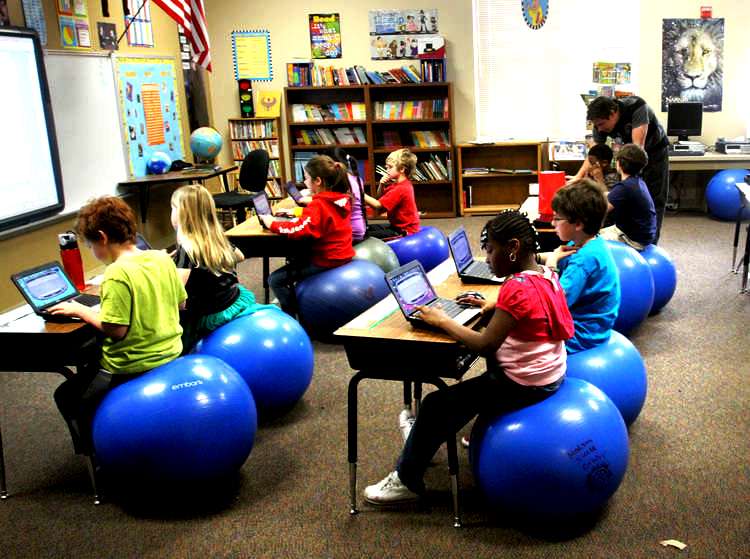For this blog post, I was required to watch several videos about what technology is starting to look like in the classroom. A question was posed afterwards about what I need to do in order to prepare for my career as a teacher that I have answered below.
What are the things that you believe you will need to know and do to prepare for your career as a teacher before you graduate that will enable and support your ability to use technology effectively as a component of your classroom instruction and to foster student participation and learning?
To prepare for my career as a teacher, I think I will have to learn a lot more about technology and practice what I learn every day. I've never been very good with technology because there is so much you can do with it and I just never wanted to take the time to learn about it. There are several apps and tools that will be beneficial to learn in order to enhance learning in the classroom. For example, iMovie could be very useful in my classroom since I plan on being an English teacher. They could use this tool to create book trailers and short movies to show that they comprehend what they read instead of just taking a quiz. It could also help with grading because I could have them take tests online that automatically give them feedback. Clearly, I have a lot to learn about technology before I graduate, but I am willing to learn more if it will help my students learn in the classroom.
Here are the links to the videos I had to watch for this post. I have also included summaries of each and what I have learned from them.


Using iMovie and the Alabama Virtual Library in Kindergarten
In this video, I learned about what children in kindergarten are doing in classrooms with iMovie and the Alabama Virtual Library. With iMovie, the children can take a book that they read in class and create a book trailer in which they reflect on the book. This helps them to be more engaged with the book and make a project that they are proud to take complete ownership of. It is also a great source to start fostering the necessary skill of editing. The Alabama Virtual Library is a free tool that can be used to teach students how to research. It is safe and can be used to practice searching each week. It pulls up the best articles for whatever topic they are doing research on. I can see myself using both of these technologies in the classroom.
We All Become Learners
This video had to do with how technology changes the dynamic of learning in the classroom. Everyone becomes a learner when technology is involved because the teachers are teaching students and students are teaching the teachers. For example, there was an app called Padlet that was described in the video. It is used by the teachers and students to post questions and answers. The teacher was trying to figure out how to take a picture and a student ended up showing her how to do it correctly. Clearly, technology provides the chance for everyone to learn rather than have the teacher teaching and the students learning.
iPads in the Classroom
This video was a newscast about the way iPads are being used in the classroom. One teacher said that iPads provide the opportunity to take a virtual field trip. For students in special education, there is a tool called iconverse that allows them to communicate via touching buttons. In a physics classroom, students can build coasters with an app on the iPad. Another use of the iPad is the ability to take tests or take pictures of writing assessments and get automatic feedback. Technology provides students and teachers with many ways to access information, converse with professionals, provide accommodations, and to create new and inventive assignments. As more and more schools adopt technology as an enhancement to learning, it is important for educators to learn how to use this technology effectively and to their benefit.
Top 10 Reasons to Use Technology in Education
I learned ten of the many reasons to use technology in education from this video. Students love it because it allows them to be creative. It engages the four components of learning which are active engagement, participation in groups, frequent interaction and feedback, and professional development. It makes life easier for teachers because they don't have to spend as much time grading or teaching in the classroom, and they can focus more time on the questions students have. It improves test scores. It helps students with low attention spans because it's constantly changing and there are several online games that aid in learning. Students can learn from the experts. It encourages homework. Over time it saves money. Finally, technology can remove obstacles to learning by allowing several types of learning styles in the classroom.





